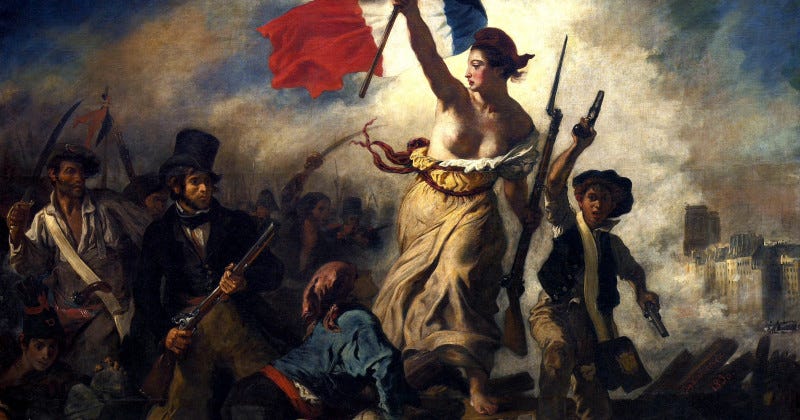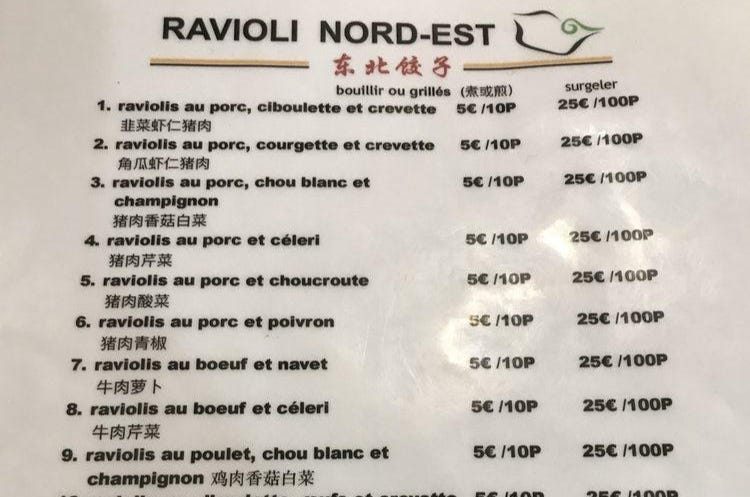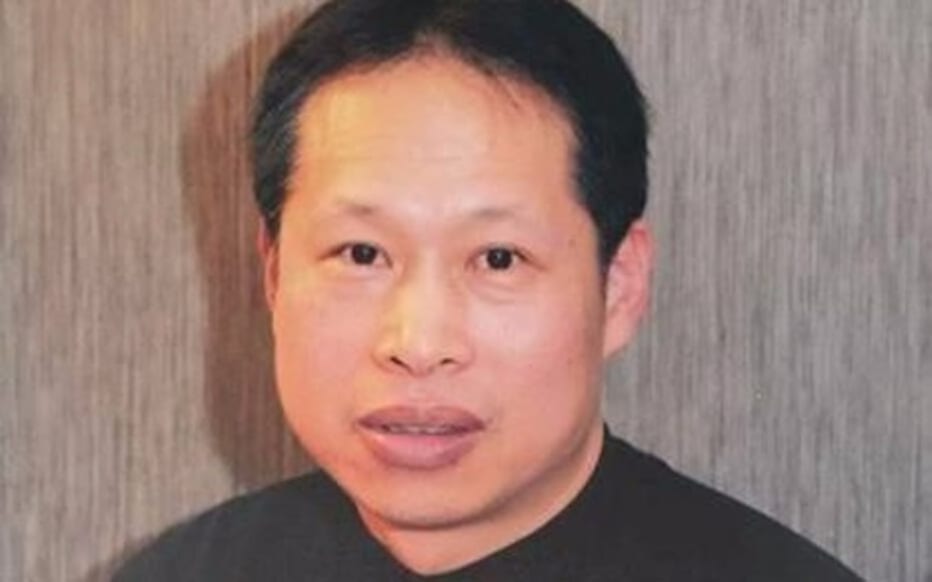The Asian in Paris
Examining the French Depiction, Attitude, and Treatment Towards Asians in Paris

While every nation holds a political gradient of diverse and opposing ideas, I had conceived Paris as a place that celebrated notions of revolution and progress. During my time spent abroad in Paris, France, I also expected the more romanticized version I found in its films of the 50s and 60s. However, my first reaction was a slight disillusionment, particularly at the sight of globalization that has taken place in the city. Witnessing the separation of the city from its outlying suburbs, I saw the resultant segregation of immigrants from the white-dominant bourgeoisie that I quickly realized were the only people depicted in the films I’ve been romanticizing.
One day, a group of friends and I, returning from class in the 19th arrondissement, were craving Chinese food. Spoiled by its abundance in New York City, we found it quite difficult to locate one. Once we did, I noticed that the restaurant specifically served dumplings, jiaozi. However, these dumplings were referred to in French as “ravioli chinois, “Chinese ravioli”.
Since such a description would not at all fly in New York, I was curious as to why it became referred to that. The French have no word for dumplings, the closest being “boulette” which refers to a meatball. So then, of all the possible names to attribute jiaozi (perhaps use the English word since such a word does not exist for the French, or to perhaps just use the authentic Chinese name) why would one ‘Frenchify’ the name of the dish?
Of course, the restaurant owners made a choice to refer to it in such a name to cater to the Parisian population, but why is such a choice even required in the first place? While not necessarily racist or discriminatory, the renaming of the dish to please French palettes is a sign of their sense of “cultural superiority.” As a result, the disdain towards Asians in Paris is more subtle than with other minority groups.
The ‘Frenchification’ of culture as well as the presence of these banlieues, ethnic suburban outskirts, have made me question if they are correlated, and if so, how, and where did these attitudes stem from?
Why is the depiction of, attitude, and treatment of Asians in Paris the way it is? By specifically looking at the foundational political beliefs of France, in its Republicanism, colonialism, as well as Asian diasporas in France, we can see how these ingrained ideas manifest towards Asians in a contemporary context.
The first question I asked in determining intercultural relations in France is: “why does France feel so culturally superior?”
Most of the world, at least America, has viewed France as an index of taste and refinement, as seen in the abundance of influential films, art movements, and cooking styles. But their political ideas of freedom and democracy stemmed from the French Age of Enlightenment, and have influenced almost the entirety of Western Europe, as well as the United States. The sense of superiority would then reflect a conservative need to preserve French attitudes as more and more cultures begin to emerge in Paris.
Claiming to be the founder of democracy, France possesses this eminence, or distinction, that portrays itself as the cultural capital of the world, where artistic ideas and notions of progress are shared. In fact, the fundamental beliefs of the Enlightenment have influenced and inspired the American Revolution, proving that these ideas could actually work as a revolutionary mode. Subsequently, the French Revolution emerges, and from that the motto “Liberte, Egalite, Fraternite.”

What does “egalite” actually mean?
In the midst of globalization, the question of French equality (egalite) becomes an increasingly heated debate between the left and the right, with many conservative French saying that all French are equal in the fact that they are nationally French, and therefore should behave in the mode of French beliefs. While one can be ethnically diverse, they are French first and foremost above all.
On a side note, another essential element of French Republicanism is “laïcité” or secularism, which emphasizes the setting aside of religion when in public. In the eyes of most French conservatives and liberals, this allows for equality. A result of such notions is the controversial veil laws, since the donning of the head-cover reflects a priority to Allah, not the Republic.
For such reasons, in hopes to avoid ethnic and religious identifiers emphasizing divisions inside France, the government forbids public institutions from gathering data on personal details. This prohibition complicates discussions on the ethnic and religious character of French society.
Hence, the ravioli chinois - the name serves as an attempt, not just to cater to the French palette, but to reflect French ideals on identity, wherein one is French before they are Chinese. The means of achieving equality is quite different from America’s, which emphasizes a celebration of differences rather than setting them aside for a common identity. To be French first and foremost is a form of nationalism, wherein one is in solidarity with the rest of the state through the bond of their nationality.
While admirable, and a seemingly positive force for bringing people together, nationalism only works to unify their country if all voices are represented. However, since there is technically only one voice, the voice of the “French,” it becomes quite difficult to allow for representation in legislation. Additionally, such a need for representation in the first place signifies that not everyone is truly “equal.” So why does Republicanism not work, if everyone is expected to equally set aside their identities for a common one?
French Colonialism
The same French Enlightened came up with their ideas during the height of French power, wherein France colonized many parts of Africa and Southeast Asia.
Its Asian portion, known as “French Indochina,” comprised of modern-day Cambodia, Laos, and Vietnam. French presence was strong there, and so was its degradation of what it deemed “primitive” and “dirty.” In fact, the southern section of Vietnam was referred to as “Cochinchine,” which essentially means “dirty China” in French.
France’s technological superiority over Indochina allowed them to assume that they were also culturally superior to the countries that they chose to colonize. This superiority complex, coupled with a need to acquire rare resources (rice, coal, rare minerals, rubber) for the motherland, warranted the invasion and exploitation of these countries. Because they were “primitives” who also happened not to be fellow Frenchman, the Republic’s values did not apply to them, and freedoms, equalities, and fellowship were all stolen.
After the Second World War, however, there was a power struggle, wherein Vietnam expected to see France remove itself from Indochina, but France believed differently. Such conflicts eventually caused the development of the First Indochina War and the Vietnam War. However, once Vietnam acquired its independence from France, America entered the conflict, leading to a massive International displacement crisis.
Diaspora and The Asians of the 93rd
The fall of Saigon in 1975 gave rise to an immense Asian diaspora on an international scale, with hundreds of thousands of Vietnamese, Laotian, Cambodian, and Chinese refugees entering France immediately after the war. Now having to live in France, the Asian population had to integrate, leaving aside their cultural values in favor of “laïcité” to become a fellow French. However, the superiority complex of a traditionalist, white French policymakers still remained in Paris at the time and had deemed the Asian population ‘not French enough’ for integration. Hence, the allocation of Asians into the banlieue, essentially the outskirts of Paris. Here, Algerians experienced a similar displacement after their war with France, and their tensions are a whole other story
A large population of Asians live in Ville d'Aubervilliers, a commune in Seine-Saint-Denis, a neighboring section of Paris known by its district number: 93. In this French Department, the 93rd houses many impoverished ethnic minorities, and has been deemed too dangerous for city-center Parisians to enter. Vilified in the media for its crime, trafficking, and drug usage, the 93rd’s dangerous climate is inevitably associated with the minorities who live there. While Aubervilliers is not as turbulent as its neighboring communes, and Asians not at the forefront of being deemed a “dangerous minority,” its Asian population continues to face unwarranted cruelty.
Treatment of Asians in Paris
In the 93rd alone, dozens of attacks were reported to be specifically against Chinese people between the months of August to October 2016, reported in the communes of Aubervilliers, Saint-Denis, Bobigny, La Courneuve, the Bourget, and Noisy-le-Sec.
Tensions reached an unprecedented height in August when father-of-two, 49-year-old tailor Zhang Chaolin died after being assaulted by three teenagers in a street in Aubervilliers, apparently kicked in the sternum and immediately hitting the pavement. When the teenagers were interrogated by the French police, they claimed that they viewed the Chinese as “easy targets,” and therefore attempted to steal Zhang Chaolin’s bag. The second wave of anti-Asian acts of violence emerged during the advent of the pandemic, where many perceived a negative correlation between Chinese and COVID-19. Since then, many Asian Parisians have been outspoken in their fight against anti-Asian rhetoric, so deeply entrenched in the cultural dynamics that stem from French colonialism.
To be equal in the eyes of the Republic would mean solidarity under the French flag for all races and religions, but to achieve such a thing would require heightened awareness of why such equality does not exist in the first place. Once such occurs, the Republic continues to struggle with the constitution and definition of “egalite” in an increasingly globalized world. It would be an extremely challenging task that I have no answer to. All I can say is that it won’t be so easy to romanticize Paris as I used to, that’s for sure.
For a more in-depth examination of Parisian minorities, read the articles below:
Branded a no-go zone: a trip inside the 93, France's most notorious banlieue
FRANCE IN THE FACE OF COMMUNITARIANISM / LA FRANCE FACE AUX COMMUNAUTARISMES
Traveling Noir: Seeking a Better Life in Paris's 'Little Africa'
If you liked what you read, be sure to subscribe above and follow us on Twitter and Instagram @invisibleasians to stay updated on Politically Invisible Asians!





